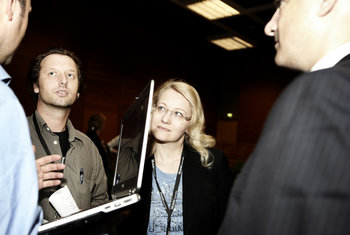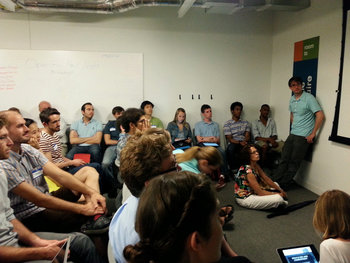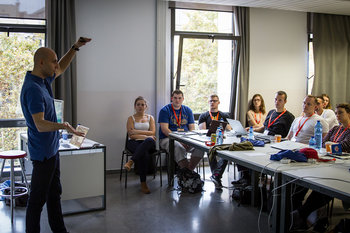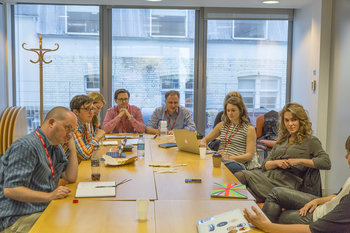
Organizational Culture
A firm with a norm of avoiding political and religious debate as these can produce strong disagreements that have nothing to do with work.Culture
A culture, subculture or superculture with a norm of leaving certain topics undiscussed. For example, a culture that views spirituality as a personal thing as opposed to a grand venue of debate.Parked Issues
The practice of leaving business issues open without devoting any time to their resolution. For example, a project can close with a list of issues left unresolved. Likewise, a list of operational issues can be viewed as a backlog whereby low priority items may never be addressed. At some point, unresolved issues may be dropped in a process known as backlog refinement.Time Management
Leaving an issue unresolved for the sake of time. This is common in a system of consensus decision making where decision authority isn't assigned to individuals. For example, if two sides can't agree on the value of a proposed strategy it may be left unimplemented.Influencing
Generally speaking, arguing with people about controversial issues isn't an efficient way to build social connections and influence. As such, professionals who depend on social influence to achieve objectives may avoid such debate. For example, a salesperson or diplomat may refuse to be baited into an argument that isn't relevant to their goals.Dealing With Criticism
An individual with a strong sense of identity and purpose who doesn't feel a need to defend themselves every time they are criticized.Public Relations
An organization that responds to criticism from investors, customers, employees, partners, communities and governments with boilerplate responses that point to the firm's mission, values, strategy or policy without any attempt to convince or persuade.Social Harmony
Agreeing to disagree is a social strategy that suggests there is a time and place for political debate and a time and place for finding areas of agreement between people to build social bonds. Leaving issues unresolved allows a community, group, team or family to focus on areas of commonality. The opposite strategy can be described as creative tension, whereby constant debate creates a tense environment that is conductive to change.| Overview: Agree To Disagree | ||
Type | ||
Definition (1) | An agreement, often unspoken, to leave a contentious issue unresolved. | |
Definition (2) | A social strategy that prioritizes social harmony over debate and change. | |
Definition (3) | The practice of refusing to be baited into an argument that isn't relevant to your goals. | |
Opposite Of | ||
Related Concepts | ||



























